
Journal of Failure Analysis and Prevention
Scope & Guideline
Transforming Failures into Opportunities for Improvement
Introduction
Aims and Scopes
- Failure Analysis Methodologies:
The journal emphasizes various methodologies for analyzing failures, including metallurgical investigations, finite element analysis, and statistical modeling, to determine root causes and mechanisms of failure. - Material and Structural Integrity:
Research often focuses on the integrity of materials and structures under different environmental and operational conditions, highlighting how various factors contribute to material degradation and failure. - Industry Applications:
The journal covers a wide range of industry applications, including aerospace, automotive, energy, and manufacturing, providing insights into failures specific to these sectors and offering practical solutions. - Preventive Strategies and Design Improvements:
There is a consistent focus on developing and proposing preventive strategies, design improvements, and maintenance practices aimed at reducing the likelihood of failures in various systems. - Interdisciplinary Research:
The journal encourages interdisciplinary research that combines insights from engineering, materials science, and applied physics to address complex failure issues.
Trending and Emerging
- Artificial Intelligence and Machine Learning Applications:
There is a rising trend in the application of AI and machine learning techniques for predictive maintenance and failure diagnostics, showcasing the journal's adaptation to technological advancements. - Advanced Materials and Composites Analysis:
Research on advanced materials, including composites and alloys, is gaining traction, emphasizing their unique failure mechanisms and performance under various conditions. - Sustainability and Environmental Impact:
Increasing attention is being given to the sustainability aspects of materials and processes, with papers discussing failure analysis in the context of environmental impact and resource efficiency. - Multi-Scale and Multi-Physics Modeling:
Emerging themes include multi-scale modeling approaches that integrate various physical phenomena to predict failure more accurately, reflecting the complexity of real-world applications. - Failure Prevention Innovations:
There is a noticeable increase in research focused on innovative failure prevention strategies, including real-time monitoring systems and advanced material treatments.
Declining or Waning
- Traditional Failure Analysis Techniques:
There has been a noticeable decline in the publication of papers focused solely on traditional failure analysis techniques without integration of advanced technologies such as AI and machine learning. - Basic Materials Testing:
Papers that solely discuss basic materials testing, such as tensile or hardness testing without context of failure analysis applications, are becoming less frequent as more complex analyses are favored. - Generalized Case Studies:
Publications that offer generalized case studies without specific insights or advanced methodologies are waning, as the journal shifts towards more detailed and technical analyses. - Focus on Single Failure Modes:
Research focusing on single failure modes is decreasing in favor of studies that address multiple failure modes or interdisciplinary approaches that consider various factors. - Historical Failures Documentation:
While historical case studies have been valuable, there is a declining trend in documenting failures merely for historical context without linking them to modern practices or improvements.
Similar Journals
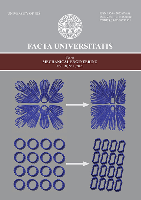
Facta Universitatis-Series Mechanical Engineering
Unlocking Knowledge in Mechanical and Civil EngineeringFacta Universitatis-Series Mechanical Engineering is a premier open-access journal published by UNIV NIS, dedicated to advancing knowledge in the fields of mechanical engineering, civil and structural engineering, industrial and manufacturing engineering, mechanics of materials, and polymers and plastics. Since its inception in 1997, this journal has been at the forefront of disseminating high-quality research, boasting an impressive standing in the academic community evidenced by its Q1 rankings in multiple engineering categories for 2023. With its Scopus ranks placing it among the top percentile—97th in Civil and Structural Engineering, 96th in Mechanical Engineering, 95th in Mechanics of Materials, 94th in Industrial and Manufacturing Engineering, and 93rd in Polymers and Plastics—this journal serves as a vital resource for researchers, professionals, and students seeking to engage with the latest developments and innovations in engineering. The journal is committed to supporting the open-access movement, ensuring that cutting-edge research is freely accessible to the global academic community, thus facilitating collaboration and advancement across disciplines.

METALURGIJA
Elevating metallurgical sciences through shared knowledge.METALURGIJA is a distinguished open-access journal published by the Croatian Metallurgical Society, dedicated to advancing the field of metallurgical sciences and engineering. With an ISSN of 0543-5846 and E-ISSN of 1334-2576, this journal has been serving the academic community since its inception, offering valuable insights into condensed matter physics, materials chemistry, mechanics of materials, and metals and alloys. As of 2023, it ranks in Q3 in the fields of condensed matter physics, materials chemistry, and mechanics of materials, and Q2 in metals and alloys, reflecting its engagement with contemporary research and emerging trends. The journal's open-access policy, in place since 2002, ensures that high-quality research is accessible to a global audience, fostering collaboration and knowledge sharing. Located in Zagreb, Croatia, METALURGIJA aims to bring together researchers, industry professionals, and students alike to contribute to systemic advancements in metallurgical research and applications, ultimately enhancing innovation within the materials science community.

Structural Integrity and Life-Integritet I Vek Konstrukcija
Enhancing Safety and Reliability in Construction.Structural Integrity and Life - Integritet I Vek Konstrukcija is a prominent open-access journal dedicated to advancing the fields of Civil and Structural Engineering, Mechanics of Materials, and Safety, Risk, Reliability, and Quality. Published by the SOC STRUCTURAL INTEGRITY & LIFE, this journal has been disseminating high-quality research since 2001 from its base in Belgrade, Serbia. The journal's commitment to open access ensures that vital research is freely accessible to a global audience, fostering collaboration and innovation within the academic community. With an impressive categorization in the 2023 quartiles, including Q2 in Metals and Alloys and Q3 in related fields, Structural Integrity and Life stands as a vital resource for researchers, professionals, and students striving to enhance understanding and applications in structural integrity and material performance. The journal invites contributions that address critical issues in the field, pushing the boundaries of knowledge and practical applications, and welcomes both empirical studies and theoretical discussions that can drive forward the next generation of engineering solutions.
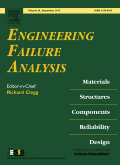
Engineering Failure Analysis
Navigating the Complexities of Engineering FailuresEngineering Failure Analysis is a prestigious peer-reviewed journal published by PERGAMON-ELSEVIER SCIENCE LTD, dedicated to advancing the field of engineering through comprehensive investigations into the causes and consequences of failures in various engineering domains. Established in 1994, the journal has become a cornerstone of knowledge in sectors such as Aerospace, Automotive, and Materials Science, earning its place within the Q1 quartile across multiple relevant categories in 2023. With a broad scope that encompasses topics related to safety, risk, reliability, and quality, it serves as a vital resource for researchers, professionals, and students keen on understanding how to mitigate failures and improve engineering practices. Although this journal does not currently offer Open Access, its impact is underscored by its high Scopus ranking, where it sits comfortably in the 36th position out of 307 in General Engineering. By bridging theoretical insights and practical applications, Engineering Failure Analysis plays a pivotal role in shaping the future of engineering standards and safety practices.
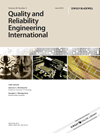
QUALITY AND RELIABILITY ENGINEERING INTERNATIONAL
Elevating Standards in Quality and Reliability ResearchQUALITY AND RELIABILITY ENGINEERING INTERNATIONAL is a prestigious journal published by WILEY, dedicated to advancing the fields of quality, reliability, and engineering. With an ISSN of 0748-8017 and an E-ISSN of 1099-1638, this journal provides a platform for scholarly articles that delve into the intricacies of management science, operations research, safety, risk, reliability, and quality, as evidenced by its strong ranking in the Q2 category for both Management Science and Operations Research, as well as Safety, Risk, Reliability, and Quality. Established in 1985 and continuing through 2024, the journal has garnered a solid reputation in the academic community, achieving a Scopus ranking in the 70th and 64th percentiles for its respective categories. Although it does not offer open access, its authoritative content is essential for researchers, professionals, and students seeking to deepen their understanding of quality and reliability principles. With its UK-based publishing address ensuring global reach, this journal remains at the forefront of discussions surrounding engineering quality and reliability methodologies.
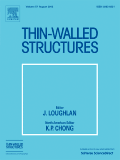
THIN-WALLED STRUCTURES
Innovating Design for Safer, Efficient StructuresTHIN-WALLED STRUCTURES is a premier international journal published by Elsevier Science Ltd, focusing on the critical areas of Building and Construction, Civil and Structural Engineering, and Mechanical Engineering. With an impressive impact factor and categorization in the Q1 quartile of each respective field, this journal stands at the forefront of engineering research, boasting commendable Scopus rankings—52nd for Mechanical Engineering, 18th for Building and Construction, and 32nd for Civil and Structural Engineering. Since its inception in 1983, THIN-WALLED STRUCTURES has provided a vital platform for disseminating innovative research, practical applications, and theoretical advancements in thin-walled structures, encouraging the development of safer and more efficient design methodologies. Although it operates on a traditional access model, the journal is committed to maintaining high-quality peer review and publishing, making it an essential resource for researchers, professionals, and students aiming to contribute to and benefit from the latest advancements in this dynamic field.

Journal of Structural Fire Engineering
Bridging theory and practice in fire engineering.The Journal of Structural Fire Engineering is a premier academic publication dedicated to advancing the field of fire safety and structural engineering. Published by Emerald Group Publishing Ltd, this journal features high-quality research and innovative solutions addressing crucial aspects of safety, risk, reliability, and the mechanics of materials. With an impact factor that reflects its growing influence in the academic community and a classification in the Q3 quartile across several engineering categories, the journal plays a vital role in disseminating knowledge that bridges theoretical concepts and practical applications. With coverage spanning from 2010 to 2024, researchers, professionals, and students can access a wealth of studies that explore the intersection of structural integrity and fire safety. While it currently operates under a subscription model, the journal remains committed to sharing pivotal insights that drive forward the discipline. Join the community of experts striving to enhance engineering practices and resilience against fire-related hazards.
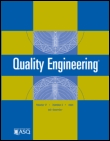
Quality Engineering
Pioneering innovative solutions in industrial quality management.Quality Engineering, published by Taylor & Francis Inc, is a leading journal in the field of Industrial and Manufacturing Engineering and Safety, Risk, Reliability, and Quality. With a focus on the advancement of quality assurance and management practices, this journal has been a valuable resource since its inception, featuring research that spans from 1970 to the present day. The journal holds a commendable placement in the 2023 category quartiles, ranked Q2 in both relevant fields, highlighting its significance in contributing to innovative methodologies and solutions in quality engineering. Although currently not an open access publication, it continues to attract a wide array of contributions from researchers, professionals, and students dedicated to enhancing quality in engineering processes. With a Scopus rank reflecting its solid standing—75th percentile in Safety, Risk, Reliability and Quality and 62nd percentile in Industrial and Manufacturing Engineering—Quality Engineering remains an essential platform for disseminating knowledge that fosters excellence in the engineering domain.
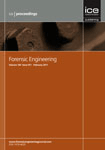
Proceedings of the Institution of Civil Engineers-Forensic Engineering
Illuminating Forensic Pathways in Civil EngineeringProceedings of the Institution of Civil Engineers - Forensic Engineering is a pivotal journal in the field of forensic engineering, published by Emerald Group Publishing Ltd, a renowned name in academic publishing. With a focus on investigating and understanding the failures of civil engineering structures, this journal provides a critical platform for the dissemination of research and case studies aimed at enhancing safety, risk, and reliability in engineering practices. It holds an important place in the Q4 quartile of the Safety, Risk, Reliability and Quality category as of 2023, and currently ranks #123 out of 207 in its field according to Scopus, reflecting its emerging influence despite its relatively recent establishment in 2011. Researchers, practitioners, and students alike will find valuable insights through non-open access articles that contribute to a deeper understanding of forensic analysis in civil engineering contexts. The journal's mission is to promote discussions that lead to significant advancements in civil engineering safety and reliability, ultimately informing best practices and policy-making in the profession.

International Journal of Rotating Machinery
Connecting Engineers with Cutting-edge ResearchThe International Journal of Rotating Machinery, published by Hindawi Ltd, is a prominent open-access journal dedicated to advancing research and innovation in the fields of Mechanical Engineering and Industrial and Manufacturing Engineering. Since its inception in 1994, the journal has been committed to disseminating high-quality research articles that explore the mechanics, performance, and design of rotating machinery, which are critical in various industrial applications. The journal has established itself within the academic community, earning a Q3 category ranking in both its specialized fields as of 2023. With a robust history spanning converged years from 1994 to 2024, and an active presence in major indexing databases, it serves as an essential resource for researchers, practitioners, and students keen to stay at the forefront of engineering advancements. Notably, the journal's open access policy ensures that all articles are freely available, fostering greater collaboration and sharing of knowledge within the global engineering community.